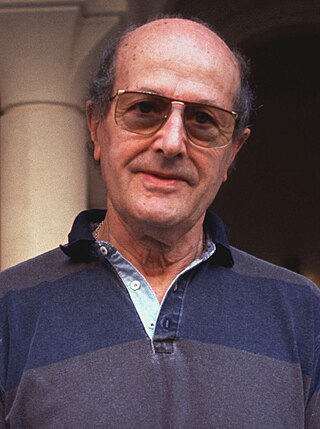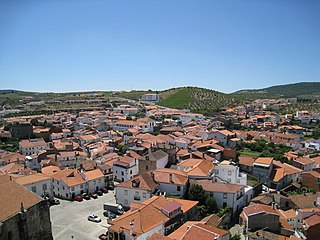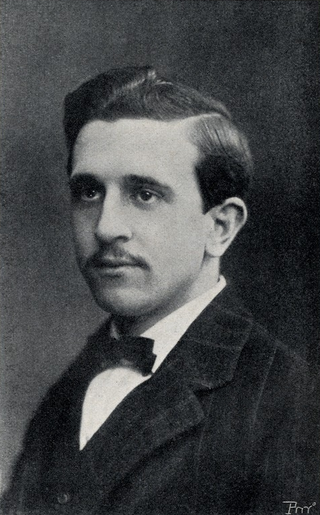
A documentary film or documentary is a non-fictional motion picture intended to "document reality, primarily for instruction, education or maintaining a historical record". Bill Nichols has characterized the documentary in terms of "a filmmaking practice, a cinematic tradition, and mode of audience reception [that remains] a practice without clear boundaries".

Porto, also known as Oporto, is the second largest city in Portugal after Lisbon. It is the capital of the Porto District and one of the Iberian Peninsula's major urban areas. Porto city proper, which is the entire municipality of Porto, is small compared to its metropolitan area, with an estimated population of just 237,559 people in a municipality with only 41.42 km2 (16 sq mi). Porto's metropolitan area has around 1.7 million people (2021) in an area of 2,395 km2 (925 sq mi), making it the second-largest urban area in Portugal. It is recognized as a global city with a Gamma + rating from the Globalization and World Cities Research Network.

Lamego is a city and municipality in the Viseu District, in the Norte Region of the Douro in northern Portugal. Located on the shores of the Balsemão River, the municipality has a population of 26,691, in an area of 165.42 km2.

Manoel Cândido Pinto de Oliveira was a Portuguese film director and screenwriter born in Cedofeita, Porto. He first began making films in 1927, when he and some friends attempted to make a film about World War I. In 1931, he completed his first film Douro, Faina Fluvial, a documentary about his home city Porto made in the city-symphony genre. He made his feature film debut in 1942 with Aniki-Bóbó and continued to make shorts and documentaries for the next 30 years, gaining a minimal amount of recognition without being considered a major world film director.

The Cinema of Portugal started with the birth of the medium in the late 19th century. Cinema was introduced in Portugal in 1896 with the screening of foreign films and the first Portuguese film was Saída do Pessoal Operário da Fábrica Confiança, made in the same year. The first movie theater opened in 1904 and the first scripted Portuguese film was O Rapto de Uma Actriz (1907). The first all-talking sound film, A Severa, was made in 1931. Starting in 1933, with A Canção de Lisboa, the Golden Age would last the next two decades, with films such as O Pátio das Cantigas (1942) and A Menina da Rádio (1944). Aniki-Bóbó (1942), Manoel de Oliveira's first feature film, marked a milestone, with a realist style predating Italian neorealism by a few years. In the 1950s the industry stagnated. The early 1960s saw the birth of the Cinema Novo movement, showing realism in film, in the vein of Italian neorealism and the French New Wave, with films like Dom Roberto (1962) and Os Verdes Anos (1963). The movement became particularly relevant after the Carnation Revolution of 1974. In 1989, João César Monteiro's Recordações da Casa Amarela won the Silver Lion at the Venice Film Festival and in 2009, João Salaviza's Arena won the Short Film Palme d'Or at the Cannes Film Festival. Several other Portuguese films have been in competition for major film awards like the Palme d'Or and the Golden Bear. João Sete Sete (2006) was the first Portuguese animated feature film. Portuguese cinema is significantly supported by the State, with the government's Instituto do Cinema e do Audiovisual giving films financial support.

A Talking Picture is a 2003 Portuguese drama film written and directed by Manoel de Oliveira and starring Catherine Deneuve, John Malkovich, Irene Papas, Stefania Sandrelli and Leonor Silveira. This was Irene Papas’ final film before her death in 2022.

Freixo de Espada à Cinta, sometimes erroneously called Freixo de Espada Cinta, is a municipality in the northeastern region of Portugal, near the border with Spain, along the Douro River Valley. The population in 2011 was 3,780, in an area of 244.14 km2.
Aniki-Bóbó is a 1942 Portuguese film directed by Manoel de Oliveira. It is his first feature-length film. The actors are mostly children from Oliveira's hometown, Porto. The script was adapted by Manoel de Oliveira from a short story by José Rodrigues de Freitas, Meninos Milionários. 'Aniki-Bóbó' is a rhyme from a children's game, akin to Eeny, meeny, miny, moe.

Luís Maria da Costa de Freitas Branco was a Portuguese composer, musicologist, and professor of music who played a pre-eminent part in the development of Portuguese music in the first half of the 20th century.
Ethnofiction refers to a subfield of ethnography which produces works that introduce art, in the form of storytelling, "thick descriptions and conversational narratives", and even first-person autobiographical accounts, into peer-reviewed academic works.

The Strange Case of Angelica is a 2010 Portuguese drama film directed by Manoel de Oliveira. It was entered into the Un Certain Regard section of the 2010 Cannes Film Festival. De Oliveira conceived the idea for the film in 1946 and initially wrote the script in 1952, updating it with modern elements.
The Artist and the City is a 1956 short Portuguese documentary film directed by Manoel de Oliveira. The film shows a series of watercolor paintings by Portuguese artist António Cruz of what he sees while walking through different parts of the city of Porto. It was the first color film directed by Oliveira. Oliveira considers it forms a trilogy about the Douro and Porto, with Douro, Faina Fluvial and Aniki-Bóbó
Porto of My Childhood is a 2001 Portuguese/French film directed by Manoel de Oliveira. Manoel de Oliveira narrates a documentary which features staged dramatic scenes of memories and stories told to him during his childhood in Porto.

Eccentricities of a Blonde-Haired Girl is a 2009 Portuguese romance film directed by Manoel de Oliveira. Oliveira's grandson has a starring role. It played at the New York Film Festival and was released on DVD.
Magic Mirror is a 2005 Portuguese film directed by Manoel de Oliveira. It was shown in competition at the 2005 Venice Film Festival. It is based on a novel by Agustina Bessa-Luís. The film was conceived as the second part of a trilogy that begun with the 2002 film The Uncertainty Principle.
The Hunt is a 1963 short Portuguese film directed by Manoel de Oliveira. The film is a grim, surrealistic short narrative film that contrasted with the positive tones of Oliveira's previous film. Due to censorship issues, Oliveira was forced to add a "happy ending" to the initial release of the film and was unable to restore his original ending until 1988. Because of this film and anti- Salazar regime comments Oliveira made after a screening of his previous film O Acto de Primavera, he was arrested by the PIDE in 1963. He spent 10 days in jail and was interrogated until finally being released with the help of his friend Manuel Meneres.
Events in the year 2001 in Portugal.
Events in the year 1931 in Portugal.

Visit or Memories and Confessions is a Portuguese documentary film directed by Manoel de Oliveira. It was released in Portugal on 4 May 2015.
A Glória de Fazer Cinema em Portugal is a 2015 short documentary film by Portuguese director Manuel Mozos.











